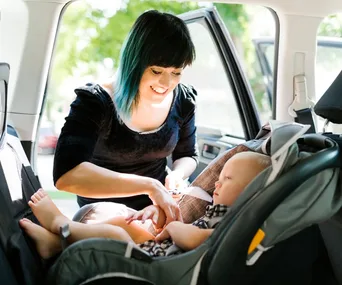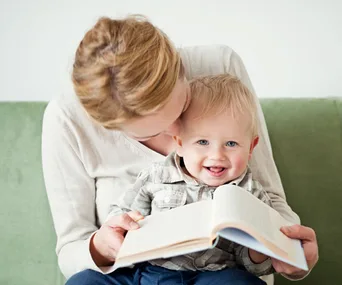Talking, laughing and staying healthy
Talking
From the age of one, your little one will go from a babbling baby to a little chatterbox. Encourage your baby’s language skills with these tips:
Wait: Young children take longer than adults to think about what they hear – up to 12 seconds after you have finished speaking. So pause before saying something else to give your child time to respond.
Chat time: Talk through the steps of routine tasks, such as nappy changes and getting dressed. Hearing you repetitively talk about the same things helps your child understand and learn new words. Enjoy reading books together, point and name pictures and read the same book to encourage repetition.
Use the correct words: As cute as it sounds, avoid copying your child’s pronunciation of a word or pointing out they are wrong, for example if she says, ‘There tat’, you say ‘Yes, it’s a cat’. She’ll learn faster if you do it this way rather than if you say, ‘It’s not tat, it’s cat.’

Encourage your little one’s language skills by using the correct pronunciation of words. (Image: Getty Images)
Laughing
Your little one will have been giggling at physical contact and fun games from an early age, but she won’t laugh at something you say until she reaches 12 to 15 months. You’ll notice her smile slowly turn into a giggle during a game as she understands things (aside from tickles!) can be funny.
Not all babies laugh at the same things, so make funny faces and noises and play peek-a-boo to find out what makes your child giggle.
Developing a sense of humour is a learning process, and some babies are more giggly than others.
Staying healthy
Get into the habit of washing your toddler’s hands before they eat and before they go to bed. Let them see you adopting sensible hygiene practices around the house as well.
If you haven’t yet taken your toddler for their 12 month vaccinations, make your appointment now. Keeping up to date with your baby’s immunisations is one of the best investments you’ll make in your baby’s health and the community’s wellbeing.
For more information on immunisations visit Australian Government Department of Health.

